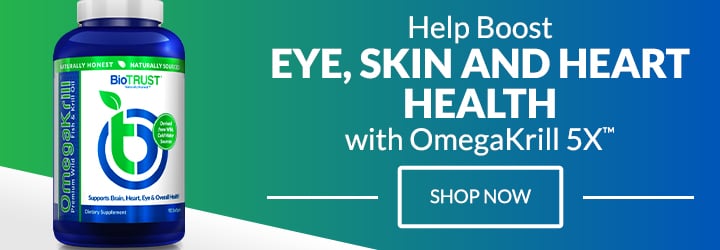See The 3 Best Vitamins for Digestive Health

Good digestion is essential to good health, yet it is often overlooked. You see, the digestive system is designed to break down food and liquids into the nutrients and energy you need to survive. These nutrients, such as carbohydrates, proteins, fats, vitamins, minerals, and water, can then be broken down and absorbed to be used for many essential functions in the body, including energy production and cell repair and growth.
Despite the digestive system’s critical functionality, each year, 62 million Americans are diagnosed with digestive issues. Further, with the incidence and prevalence of most digestive diseases increasing with age, it is crucial to do all we can to make sure our digestive health is optimal. Luckily, there are 3 vitamins for digestive health that can provide the extra support it needs.
Top 3 Vitamins for Digestive Health
1. Vitamin D
Vitamin D is most notoriously known for helping the body absorb calcium and playing a key role in how your nerves, muscles, and immune system function. What’s more, healthy levels of vitamin D can regulate gastrointestinal inflammation. 1 This is because it is thought that vitamin D can help restore good bacteria in the gut. One of the best natural sources of vitamin D is the sun.
2. B Vitamins
B Vitamins are vital for properly functioning cells in the body. Found in proteins such as fish, poultry, meat, and dairy products, as well as leafy greens and beans, B vitamins help the body form red blood cells and get energy from the food you eat. B vitamins are water-soluble, meaning you can’t store them away in your fat cells to use later, so they need to be a regular part of your diet.
There are eight types of B vitamins, and the most essential B vitamins for the digestive system include:
- B1, also known as thiamine, which helps the body change the carbohydrates in your diet into energy for your cells as well as regulate appetite.
- B3, also known as niacin, is important for many digestive tract functions, including the breakdown of carbohydrates, fats, and alcohol.
- B6, or pyridoxine, is very important in helping the digestive system process protein.
- Biotin, another B vitamin, helps your digestive system produce cholesterol and process proteins, carbohydrates, and fatty acids.
- B12, or cobalamin, plays a role in the nervous system, the production of blood cells, and the body’s use of folic acid and carbohydrates.
3. Vitamin C
Vitamin C is a nutrient your body needs to form blood vessels, cartilage, muscle, and collagen. Additionally, because it’s an antioxidant, many people associate vitamin C with supporting the immune system and potentially preventing colds. This essential vitamin, however, also aids in digestion by supporting healthy teeth and gums and helping the body absorb iron.
4 Supplements That Promote Proper Digestion
Vitamins are needed to keep our bodies functioning properly, and they help fuel essential processes needed in our everyday lives, such as helping maintain good digestion. However, beyond these vitamins for digestive health, there are also several other supplements that can support proper digestion.
1. Magnesium
Magnesium improves digestion because it plays its role as an enzyme to metabolize protein, carbohydrates, and fat. Magnesium supplements are also suggested to help decrease digestive issues, including heartburn, indigestion, and constipation.
2. Probiotics
Probiotics are live microorganisms that may help rebalance your microbiome and produce beneficial effects in the body. For example, probiotics have been shown to aid digestion, support the immune system, support healthy levels of inflammation, and so much more.
3. Prebiotics
Prebiotics are plant fibers that stimulate the growth and activity of the beneficial bacteria living in the digestive system. Prebiotic fiber provides food to existing bacteria, keeping them growing and functioning at their best to help maintain the health of your digestive system. 2
4. Omega-3s
Omega-3 fatty acids, such as EPA and DHA, have been shown to be beneficial to digestive health as well. Consumption of omega-3s promotes microbiota diversity, which may play a part in its health-related benefits. Additionally, omega-3s may help lubricate the intestine as well as support healthy levels of inflammation. 3
Our digestive systems are a window into the body that play a major role in overall health. By optimizing and supporting our digestive health, not only through a healthy diet, but with the right vitamins, minerals, and supplements, we can help make sure the body is fueled with the essential nutrients it needs.






